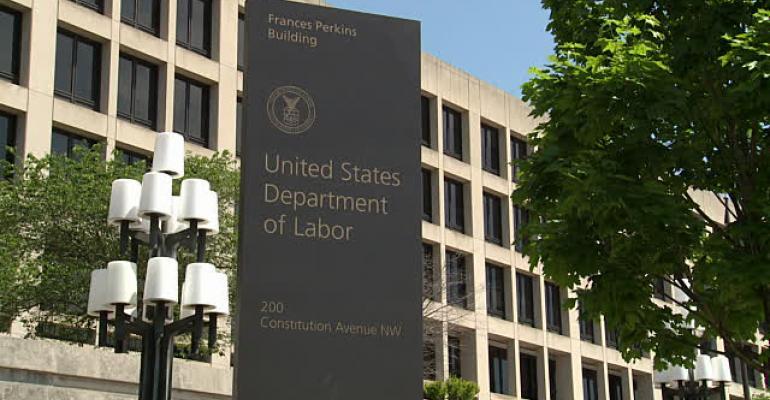A 30-day public comment period for the Department of Labor’s revised fiduciary rule is too short an amount of time to assess the ramifications of the proposal, according to a letter sent by the Consumer Federation of America and other co-signers to the DOL today.
In the letter, they argue that 30 days would be an “unreasonably short” comment period under normal circumstances, and it is all the more insufficient considering the nation’s current circumstances.
“While we are all doing our best to navigate the many challenges that stem from the COVID-19 pandemic and the accompanying economic turmoil that our nation is facing, many of our organizations have extremely limited staff and resources and are not able to operate at full capacity,” the letter read. “These obstacles hinder our and others’ ability to comment meaningfully on the proposal.”
Additional co-signers on the bill include the AFL-CIO, Financial Planning Association, Institute for the Fiduciary Standard, International Brotherhood of Electrical Workers (IBEW), and numerous other trade and advocacy organizations.
Shortly after the SEC’s Regulation Best Interest rule went into effect last week, the DOL unveiled its own updated fiduciary proposal, which was to "align" with the SEC rule. After the 5th U.S. Circuit Court of Appeals struck down the Obama administration's fiduciary rule in 2018, many expected the Trump administration to release its own rule on fiduciary standards.
The rule acts as an exemption for fiduciaries when dispensing retirement advice, provided they adhere to a number of “impartial conduct standards,” which includes a best interest standard. The rule also asserts that the 5th Circuit’s decision meant the previous “five-part” test that would determine whether a recommendation was subject to fiduciary scrutiny remained in place.
According to executive orders cited in the letter, proposed rules typically have a 60-day comment period, with some periods stretching to 90 days if they are more complex and could have a significant potential impact, according to Micah Hauptman, the financial services counsel for CFA. In the letter, they propose a 90-day comment period.
“The test of whether the length is sufficient is whether it provides a meaningful opportunity for people to comment, and given the significance of the proposal and as far as protecting retirees ... we don’t think that 30 days is nearly sufficient to provide for an opportunity to comment,” Hauptman said.
With the Trump administration proposing the rule late in his term in the midst of a reelection battle, Hauptman said the shortened comment period indicated that they were hoping to “ram it through” before the end of Trump’s term.
Jamie Hopkins, the director of retirement research at Carson Group, agreed. “Right now it does appear that they’re on a timeframe to get this done,” he said. “If you roll out the date, they should be able to get this into effect; then it’s very hard to unwind this.”
The CFA's letter argues that 30 days is insufficient to consider the issues raised by the proposed rule, which include how the five-part rule will impact retirement savers and advisors alike, how implementing exemption policies at firms will affect how they make recommendations to clients, as well as how the interaction between Reg BI and the DOL’s rule will affect implementation.
“It is certainly possible, for example, that Reg BI could result in certain unintended consequences that could come to light during the initial phases of implementation that commenters could analyze and comment on,” the letter read. “Among these possibilities, Reg BI could harm the very people it is intended to protect: low- and moderate-income Americans.”
Hauptman said he thought it was unlikely that the DOL would grant the extension, which would mean the comment period would end in early August. Afterward, the DOL would consider comments, revise the rule and send it to the White House’s Office of Management and Budget for review, after which it would be sent back for publication.
“Assuming they want to get this out the door, I don’t see any barriers to them getting it out as fast as possible,” he said. “But obviously, when you rush something, you increase the likelihood of making errors and not considering arguments made in the comments. So, you expose yourself to potential challenges if you’re sloppy.”
Should a potential Democratic administration want to reexamine the rule, Hopkins said the easiest course of action would likely be to keep the fiduciary exemption in place but reinstate a “private right of action,” which enables investors to file suits against brokers and advisors should they receive what they deem to be conflicted advice (the proposed rule does away with the private right of action).
But Hauptman cautioned that it was possible a new Democratic administration could seek to overturn the rule and enact its own.
“Given the circumstances in which this rule package has been rolled out, which are highly conflicted and suspect, and considering the Secretary previously represented the industry whose interests are at stake here, I think that would especially call for a new administration to take a fresh look,” he said.





